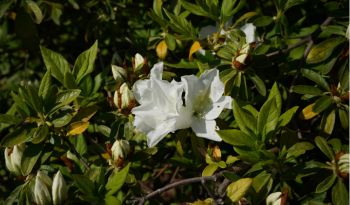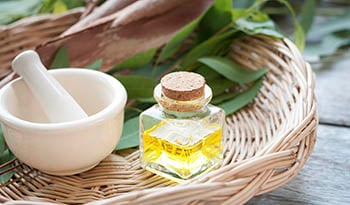Natural Approaches to Gallstone Health

The gallbladder is a small pear-shaped organ next to the liver in the right upper part of your abdomen. The main function of the gallbladder is to store bile, a substance secreted by the liver that aids digestion. Specifically, bile helps the body digest fats and the fat-soluble vitamins A, D, E and K. Bile can sometimes crystallize and form hard deposits called gallstones.
Gallstones can vary in size, ranging from smaller than a grain of sand to larger than a golf ball. There are primarily two types of gallstones–cholesterol gallstones and pigment gallstones. About 80% of gallstones are of the cholesterol variety, resulting when cholesterol crystallizes from bile. Pigment stones are composed of bilirubin, the main pigment of bile.
Gallstones can exist in your body for many years without causing any significant problems. However, when a gallstone becomes lodged in the duct that leads out of the gallbladder, it can be quite painful. Pain may be intermittent as the gallstone can get dislodged from the duct on its own. When this common bile duct remains blocked, bile builds up which can create inflammation in the gallbladder, a condition known as cholecystitis.
Natural or alternative treatments for gallstones can be appropriate management during the time before cholecystitis develops. But once the gallbladder has become completely blocked, surgical treatment is urgent. So, once you become symptomatic–if you have fever, nausea, vomiting, dark urine, diarrhea, burping, indigestion, abdominal pain or clay-colored stools–then it is important to seek medical attention.
Tips for Preventing Gallstones
The best way to avoid surgery is to prevent gallstones from occurring in the first place. Here are some ways:
Adjust your eating habits
Include more foods high in fiber and healthy fats, fewer refined carbohydrates and less sugar.
Lose weight safely if overweight
Be sure not to lose weight too quickly, as this causes your liver to release extra cholesterol into the bile. Fast weight loss can also impair proper emptying of the gallbladder. These situations increase your risk for gallstone formation.
Exercise regularly
Not only will exercising regularly help maintain a healthy weight, but there is research suggesting that regular exercisers have less chance of developing gallstones.
Have regular bowel movements
Chronic constipation increases your risk for gallstone formation.
Supplement with psyllium
Psyllium is a great source of soluble fiber which binds to the cholesterol in bile and can help prevent gallstone formation. Moreover, psyllium helps you avoid constipation.
Take vitamin C
Vitamin C helps increase the breakdown of cholesterol. in one study, women with higher blood levels of vitamin C had half the risk of developing gallstones compared to those with lower levels. 200 mg daily is the recommended dose.
Tips for Treating Gallstones
Perhaps you already know you have gallstones–maybe they were found incidentally during an ultrasound study–and you do not have any symptoms yet. You may want to treat them before they cause a problem that requires surgery. These supplements may help:
Peppermint
Peppermint oil assists your digestive system by stimulating the flow of bile and other digestive fluids. Additionally, peppermint is a terpene, a plant compound that research has shown to actually dissolve gallstones. When taking peppermint oil, enteric-coated capsules are a good choice because they get through the stomach and release the oil where its action is needed most–in the small and large intestine.
Milk Thistle
The herb milk thistle can stimulate bile formation and bile flow. It has been shown to improve the liquidity of bile. In one study, much lower levels of cholesterol were found in the bile of patients who took milk thistle.
DISCLAIMER:This Wellness Hub does not intend to provide diagnosis...
















































































 Table of Contents
Table of Contents















